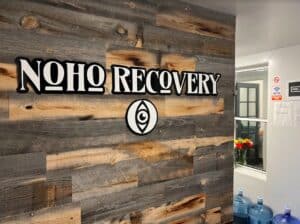Concerta Addiction And Abuse
Concerta Addiction
Concerta (Methylphenidate) is a prescription Stimulant in the same class as Ritalin; because of its similarity to Ritalin, there is a comparable potential for Concerta addiction and abuse.
In fact, Concerta and Ritalin have essentially the same chemical makeup; Concerta is the extended-release version, however, lasting up to 12 hours.
The chemical makeup of Concerta is similar to other Stimulants like Cocaine and Amphetamine, and the drug is similarly addictive.
Those who use the drug recreationally — without a prescription — and those who take more than their prescribed dosage are at risk for developing a Concerta addiction.
Online Addiction Counseling
Get professional help from an online addiction and mental health counselor from BetterHelp.
- Access to Therapy 24/7
- Easy Online Scheduling
- 20,000+ Licensed Therapists
Paid Advertising. We may receive advertising fees if you follow links to the BetterHelp site.
A person with an addiction to Concerta will experience uncomfortable withdrawal symptoms if they stop taking the drug, such as paranoia, fatigue, and depression. Other signs of Concerta addiction include:
- Needing higher doses to feel the drug’s effects (tolerance)
- Experiencing strong urges to use Concerta
- Finding new ways to obtain the drug — legally or illegally — in order to abuse it
- Using Concerta even if it’s causing issues with loved ones or responsibilities
Those struggling with a Concerta addiction are advised not to quit taking the drug without medical supervision. A medical provider can set up a tapering program for the user where the drug will be administered in increasingly smaller doses. A medical professional can also help users manage and treat withdrawal symptoms.
When abused by older teens or adults — especially if it’s crushed or poured from capsules then snorted or injected — the drug is more like other forms of Amphetamine, including Methamphetamine, that have damaging and addictive psychological and physical effects.
Understanding Concerta (Methylphenidate)
Concerta pills are cylindrical and either red, gray, yellow, or white, depending on the potency. They are formulated in 18 mg, 27 mg, 36 mg, and 54 mg strengths. Concerta is a brand name of the drug Methylphenidate. Other brand names of Methylphenidate include:
- Aptensio XR
- Metadate CD
- Metadate ER
- Ritalin
- Ritalin LA
- Ritalin SR
Street names for Concerta include Kibbles & Bits, Kiddy Cocaine, Pineapple, Kiddie Coke, Smarties, and Skittles. Concerta is a Schedule II regulated Stimulant.
Concerta is primarily used as a Stimulant medication to increase attention span and decrease hyperactivity and impulsive behavior.
Concerta and other Stimulants have a calming effect for individuals with ADHD and similar conditions and increase focus, so they are widely used to treat attention deficit hyperactivity disorder (ADHD). If individuals who do not have ADHD take these medications, however, the results will be hyperactivity and overstimulation. The drug also slowly raises the user’s dopamine levels in the brain, achieving a therapeutic effect for those with ADHD and similar diagnoses.
Some people abuse Concerta by taking more pills than prescribed or by crushing and snorting large doses of it for a more powerful high. The drug can also be abused intravenously.
Looking for a place to start?
Join the thousands of people that have called a treatment provider for rehab information.
Free and confidential
Available 24/7
Access to professional treatment
Concerta Addiction: Effects And Abuse
Getting or using Concerta without a prescription is considered abuse of the drug. For those with a prescription, increasing the dose and/or frequency without the prescribing doctor’s recommendation is also considered Concerta abuse.
Concerta affects chemicals in the brain and nervous system that contribute to hyperactivity and impulse control. It is often prescribed to treat ADHD and narcolepsy. Although many people take Concerta to treat these conditions, others abuse the drug for its Stimulant properties.
People may abuse Concerta to:
-
Improve academic performance
As a Stimulant, Concerta increases focus and concentration as well as alertness and energy level. College-age students commonly abuse Stimulants as study aids.
-
Lose weight
Stimulants are appetite Suppressants, so people abuse Concerta in order to lose weight.
-
Get high
Because Concerta activates the reward system in the brain, the drug can provide a high when taken by someone who is not being treated for ADHD. Increased dopamine levels are associated with attention and pleasure.
Taking too much Concerta can lead to overdose, which can be life-threatening.
A Concerta overdose can affect the individual both physically and psychologically. Physical Concerta overdose symptoms include:
- Vomiting
- Convulsions
- Headache
- Increased or irregular heart rate
- Increased blood pressure
- Sinus arrhythmia
- Dry mouth
- Uncontrollable tremors
- Flushed skin
- Abdominal cramps
- Fever
- Overactive reflexes
- Rapid breathing
- Restlessness
Psychological symptoms of Concerta overdose include:
- Manic-like state
- Psychosis
- Aggression
- Compulsive behaviors
- Hallucinations
- Delusions
- Paranoia
- Disorientation
- Mental confusion
- Feeling panic/panic attacks
Concerta abuse can cause enormous strain on the user’s heart and cardiovascular system. In the most severe cases, Concerta abuse may result in cardiac arrhythmia, heart attack, excessively high or low blood pressure, stroke, circulation failure, convulsions, seizure, coma, or fatal drug poisoning.
Common Concerta Drug Combinations
Concerta is sometimes taken in combination with other drugs, such as alcohol, especially by college students. Mixing Concerta with alcohol can have dangerous consequences.
As a Stimulant, Concerta can override the Depressant effects of alcohol. Users may not feel the effects of alcohol like they normally would, leading them to drink more. This increases the risk of alcohol poisoning, which can be fatal.
Combining the drug with alcohol can also intensify the negative side effects of Concerta, such as nausea, headaches, and dizziness. It can also cause anxiety and impaired concentration in the user.
Check if my insurance covers rehab
Addiction Center is not affiliated with any insurance.
Concerta Addiction And Abuse Statistics
6.4
million
Approximately 6.4 million children four to 17 years of age have been diagnosed with ADHD.
1 in 3
college students
Approximately one-third of college students have abused Stimulants like Concerta.
15,585
ER visits
There were 15,585 emergency room visits related to ADHD treatment medications like Concerta reported in 2010.
Overcoming Addiction
Overcoming a Concerta addiction can be difficult, but professional treatment can help with the process. Please contact a treatment provider now for help finding a Concerta addiction treatment program.
Published:
Author
Jeffrey Juergens

-
Jeffrey Juergens earned his Bachelor’s and Juris Doctor from the University of Florida. Jeffrey’s desire to help others led him to focus on economic and social development and policy making. After graduation, he decided to pursue his passion of writing and editing. Jeffrey’s mission is to educate and inform the public on addiction issues and help those in need of treatment find the best option for them.
- More from Jeffrey Juergens
Reviewed by Certified Addiction Professional:
Theresa Parisi

Theresa Parisi is a Certified Addiction Professional (CAP), Certified Behavioral Health Case Manager (CBHCM), and International Certified Alcohol and Drug Counselor (ICADC) with over 12 years of experience in the addiction treatment field.
- More from Theresa Parisi
Sources


Recovery Starts Today
Call Now For Addiction Support



Newport Academy – Teen Rehab Center
Port Townsend , WA


Sequoia Detox Centers
Spokane Valley , WA



Moonlight Mountain Recovery – Nampa
Nampa , ID

Bayside Marin Treatment Center
San Rafael , CA

Newport Institute for Young Adults
Sunol , CA

The Camp Recovery Center
Scotts Valley , CA

Moonlight Mountain Recovery
Pocatello , ID


Tarzana Recovery Center – TRC
Tarzana , CA

